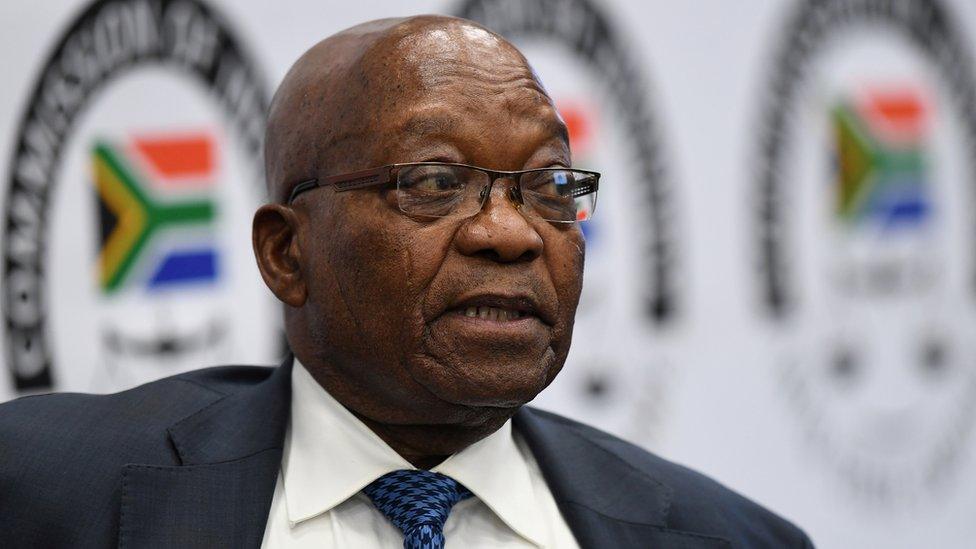South Africa’s Gupta brothers sanctioned by US over 'corruption'
- Published
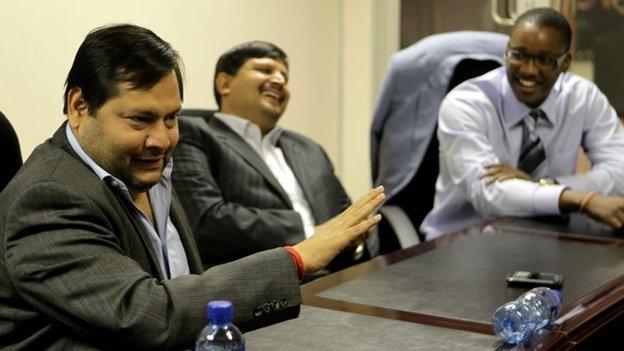
Ajay Gupta (L) - pictured here with his brother Atul and Duduzane Zuma - has denied any wrongdoing
The US Treasury has imposed sanctions against the Gupta family and an associate over alleged corruption in South Africa.
The sanctions were targeted at brothers Atul, Ajay and Rajesh Gupta, and South African businessman Salim Essa.
They are accused of using their friendship with Jacob Zuma, South Africa's former president, to profit financially and influence ministerial appointments.
The accused have denied any wrongdoing.
Mr Zuma, who was forced to resign as president in February 2018, has faced allegations he oversaw a web of corruption while in office.
He was replaced by his then-deputy, Cyril Ramaphosa, who promised to tackle corruption in South Africa.
"The Gupta family leveraged its political connections to engage in widespread corruption and bribery, capture government contracts, and misappropriate state assets," said Sigal Mandelker, the Treasury Under Secretary for Terrorism and Financial Intelligence.
The Treasury said the sanctions would target the Guptas' "pay-to-play political patronage" in South Africa, but did not elaborate on the details.
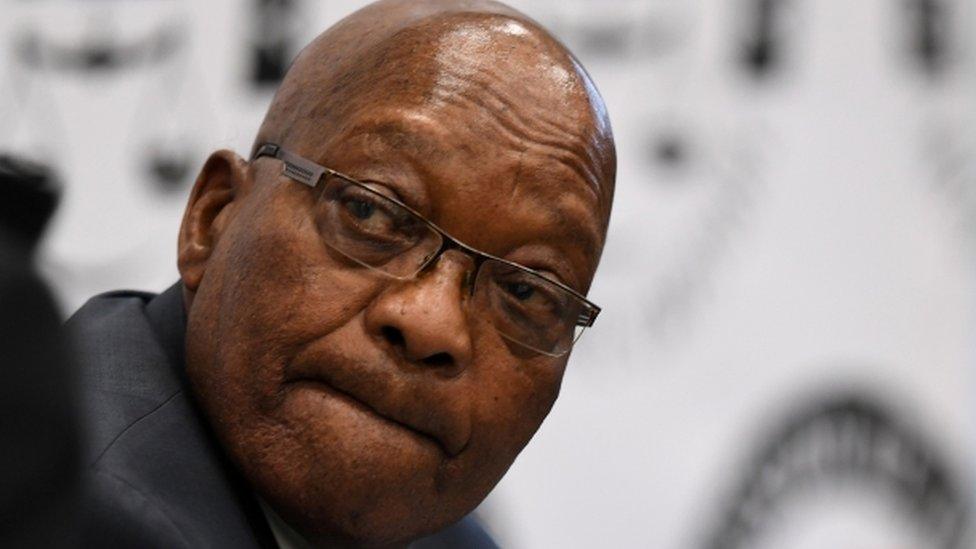
Former South African President Jacob Zuma was forced to resign in February 2018
"We will continue to exclude from the US financial system those who profit from corruption," the Treasury added.
In a statement, South Africa's Department of Justice said the sanctions will ensure the accused "are prohibited from conducting any business in the USA or with any American company worldwide".
The Guptas have fled South Africa, and are said to be living in Dubai.
Who are the Guptas?
The Gupta brothers are a family of businessmen from India.
They relocated to South Africa from India's northern state of Uttar Pradesh in 1993, just as white minority rule was ending and the country was opening up to the rest of the world.
They were small businessmen back home but their parent company Sahara Group - which has no links to the Indian giant of the same name - had an annual turnover of about 200m rand ($22m; £14.3m) as of early 2018.
As well as computers, they have interests in mining, air travel, energy, technology and media.
They are said to have met President Zuma more than 10 years ago when he was a guest in one of their parties.
- Published14 February 2018
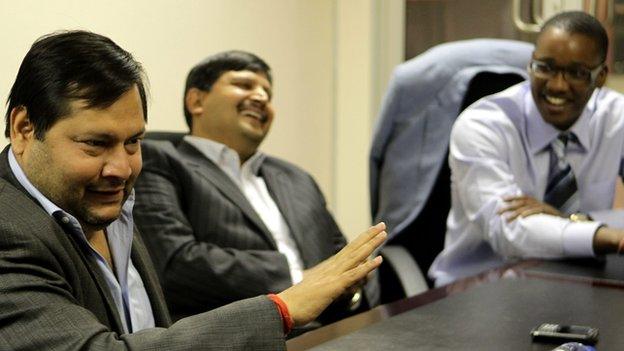
- Published15 February 2019
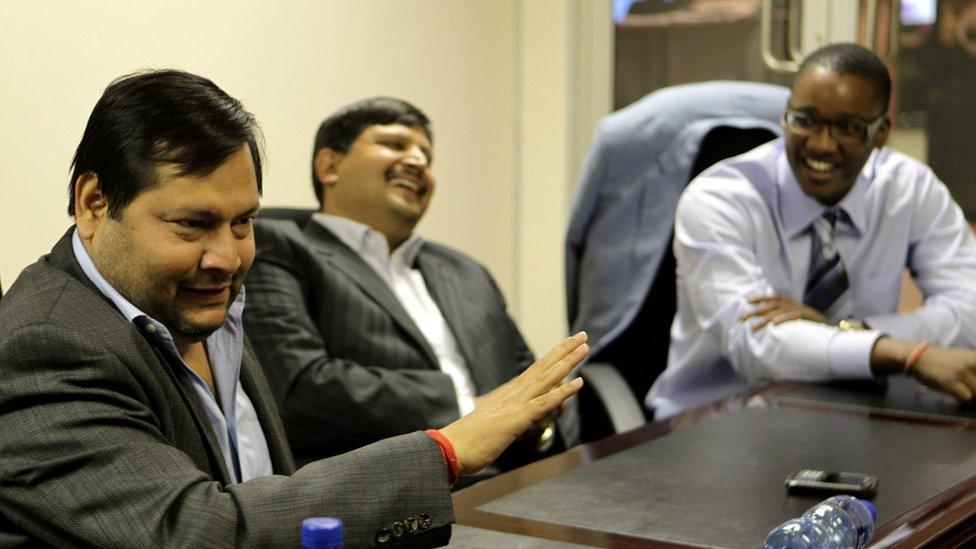
- Published19 July 2019
